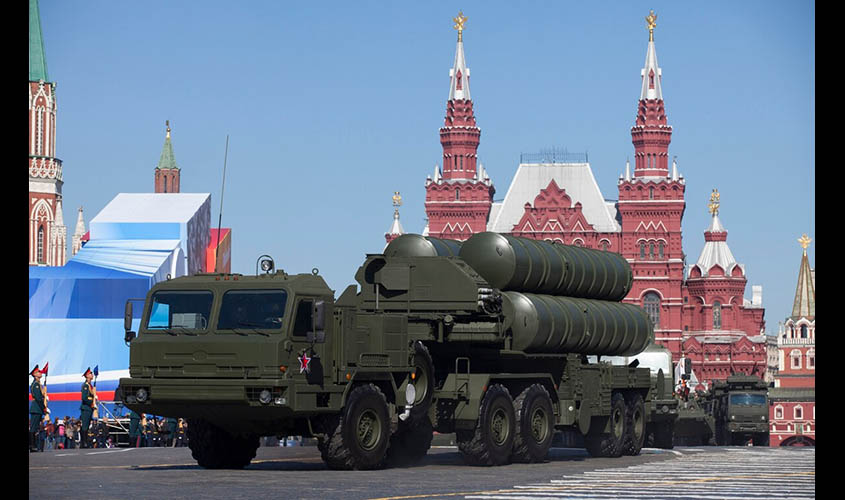New Delhi: India’s decision to acquire the Russian S-400 surface-to-air missile system, has cast a shadow on the discussions between the United States and India especially on the third foundational military pact with the US, which could not be signed during the India-US 2+2 Ministerial Dialogue in Washington DC this week. Overall, however, the mood was positive in that both sides agreed on the need to work together against common threats.
Insider sources said the two countries were holding negotiations for signing the third military pact—Basic Exchange and Cooperation Agreement (BECA). However, this could not happen during the Ministerial Dialogue. BECA, according to sources, will allow India to use US expertise on geospatial intelligence and enhance military accuracy of automated hardware systems and weapons like cruise, ballistic missiles and drones.
India has already signed the Logistics Exchange Memorandum of Agreement (LEMOA) with the US and the Communications Compatibility and Security Agreement (COMCASA). However, it is yet to sign the third one—BECA. A country needs to sign these three pacts to obtain cutting-edge weapons and communications systems from the US. Sources said the delay in signing the BECA and India’s insistence on acquiring S-400 from Russia have emerged as irritants in the relationship.
The US has opposed the S-400 deal with Russia, with the Donald Trump administration threatening to impose sanctions on the countries that are acquiring weapons and military hardware from Russia. Senior US officials have cautioned India that the S-400 deal could attract sanctions under the Countering America’s Adversaries Through Sanctions Act (CAATSA), which restricts defence purchases from Russia, Iran and North Korea. However, India has told the US that it does not intend to give up the deal for the purchase of S-400 air defence missile systems.
The Dialogue was attended by Defence Minister Rajnath Singh, External Affairs Minister S. Jaishankar, US Secretary of State Mike R. Pompeo and US Secretary of Defense Mark T. Esper, besides top officials of the two countries.
Though India has tried to make the Trump Administration understand its rationale to purchase the S-400 missile system from Russia, the fact remains that it continues to remain a thorny issue. “On the constraining issue of the S-400 missile system purchase from Russia, the US has offered similar defence technologies to address the problem. Publicly, both have maintained that they are working towards harmonising their positions, but defence purchases from Russia will remain a major issue given CATSAA provisions,” a source said.
Though BECA could not be signed, the two countries signed the Industrial Security Annex, which will facilitate collaboration between defence industries of the two countries by supporting the secure transfer of key information and technology.
The two sides also finalised three agreements under the Defence Technology and Trade Initiative, which will enhance the two countries’ ability to co-produce and co-develop critical technologies. The two countries also agreed to work together to operationalise COMCASA, which was signed during the last 2+2 meeting.
This was the second round of the India-US 2+2 Dialogue, which was created by Prime Minister Narendra Modi and US President Donald Trump as the first, in India’s case, with any country to provide a positive and forward-looking vision for strategic partnership. The excellent personal chemistry between PM Modi and President Trump has helped ensure a positive and candid atmosphere for the 2+2 India-US Dialogue just concluded.
Among the key issues of mutual interest and concern that were discussed during the Dialogue was the Indo-Pacific, including ways to leverage respective strengths to benefit not just the two countries, but the entire region. The two countries also agreed to promote UN peacekeeping capacity-building of partners in the Indo-Pacific, expanding on a successful programme of trilateral cooperation that both countries did with the African countries.
The United States announced its commitment to India joining it as a founding member of the Coalition for Disaster-Resilient Infrastructure (CDRI), which will enhance its effectiveness in the region’s preparedness against natural disasters. The two countries also discussed counter-terrorism efforts during the meeting

